Mozambique: President calls for transformative leadership in public universities
Mozambique: Chapo urges national dialogue for peace

Daniel Chapo speaking at a rally in Nampula city, on Thursday, 27 March 2025. [Conselho Municipal de Nampula]
Mozambican President Daniel Chapo on Thursday called for peace, national reconciliation and unity among Mozambicans.
Speaking at a rally in the northern city of Nampula, he invited all Mozambicans to take part in a national dialogue to achieve peace. He declared that the purpose of his visit to Nampula “is to work with the people to create an environment of peace”.
He noted that elections have been held in Mozambique for more than 30 years, but elections are always followed by “confusion”. He invited Mozambicans to reflect on this.
READ: Mozambique: President arrives in Nampula for working visit
Chapo said the agreement he had signed with nine political parties earlier this month “is not the end – it’s the beginning”. The agreement, known as the “Political Commitment for an Inclusive National Dialogue” was signed by all parties represented in the Mozambican parliament, the Assembly of the Republic, namely, the ruling Frelimo Party, the Optimistic Party for the Development of Mozambique (Podemos – which is now the official opposition), the former rebel movement Renamo, the Mozambique Democratic Movement (MDM), plus five other tiny extra-parliamentary parties.
Initially, the agreement seemed a dead letter, since it excluded the most popular opposition politician, former presidential candidate Venâncio Mondlane.
However, this omission has now been corrected by the Sunday night meeting between Chapo and Mondlane, at which the two men promised to bring an end to violence between their supporters.
According to parliamentary chairperson Margarida Talapa, speaking on Wednesday at the opening of a parliamentary sitting, political commitment requires tolerance and mutual respect in order to build consensus, “which is certainly what all the signatories of the document, which will be transformed into law, are hoping for.”
“You can therefore count on this Assembly to improve electoral procedures, in an engaging way and without time constraints. We need an electoral law that, in addition to meeting the recommendations of the electoral bodies, and of national and international observers, responds to the work sought by the political commitment for an inclusive national dialogue”, she said.
She gave no detail – but the main problem with the Mozambican electoral legislation is that it is deeply politicised. The National Elections Commission (CNE), its executive body, the Electoral Administration Technical Secretariat (STAE), and the Constitutional Council, which operates as an electoral tribunal, are all full of people appointed by political parties, particularly by the ruling Frelimo Party. For as long as the political parties dominate the electoral apparatus, Mozambican elections will not be regarded as credible.
Also during his Nampula speech, Chapo condemned the post-election destruction of public facilities such as roads and health unit. “Today, when children fall ill, it’s very difficult to take them to the health centre, because the health centre no longer exists”, he said.


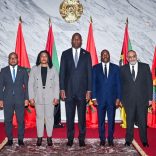
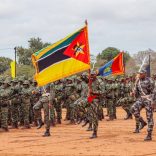

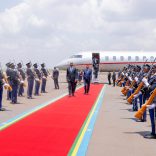
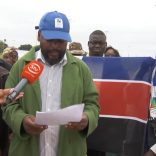
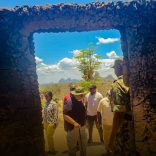




Leave a Reply
Be the First to Comment!
You must be logged in to post a comment.
You must be logged in to post a comment.